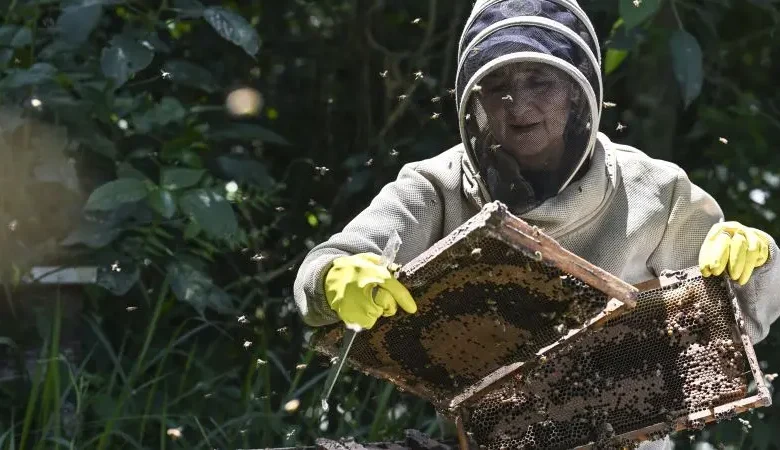Illegally felled timber used to help bees in Colombia

In the northeastern region of Colombia, police are guarding warehouses filled with confiscated timber, but rather than letting it go to waste or destruction, a noble initiative has emerged. The “Timber Returns Home” project in the Santander department is transforming the illegally harvested wood into homes for bees, which are facing challenges from pesticides and climate change.
Since its inception in 2021, the initiative has repurposed approximately 200 cubic meters (7060 cubic feet) of wood, creating 1000 bee hives. The Santander environmental authority plans to build another 10000 hives in the next phase.

Previously, confiscated timber was often reduced to sawdust, donated for various projects, or simply left to rot. Now, it is being used to combat the “extremely serious problem” of potential bee extinction, as noted by biologist German Perilla, director of the Honey Bee Impact Foundation.
The significance of pollinators, particularly bees, in sustaining human life cannot be overstated. Approximately three quarters of crops that produce fruits or seeds for human consumption rely on pollination. Alarmingly, the United Nations has warned that 40 percent of invertebrate pollinators, including bees and butterflies, are at risk of global extinction.
Official data reveals that approximately 3000 hives, each capable of housing around 50000 bees, die each year in Colombia. Laboratory tests on deceased insects have detected traces of the insecticide fipronil. In response, Colombia has issued a ban on fipronil, joining Europe and other countries that have already restricted or prohibited its use.

In addition to pesticide-related threats, climate change poses its own challenges. Rising temperatures, droughts, floods, and other extreme events disrupt the presence of nectar-bearing flowers, which bees rely on. Furthermore, heat stress has been linked to bee infertility.
The Santander environmental authority seizes around 1000 cubic meters of illegally felled timber annually as part of anti-trafficking operations in Santander. In 2022, Colombia lost 123517 hectares (305200 acres) of trees, predominantly in the Amazon rainforest, the largest rainforest in the world. Shockingly, nearly half of all timber traded in Colombia originates from illegal sources, according to the environment ministry.
By actively addressing the threats faced by bees, this initiative serves as a pathway towards promoting environmental preservation and safeguarding global food security.










